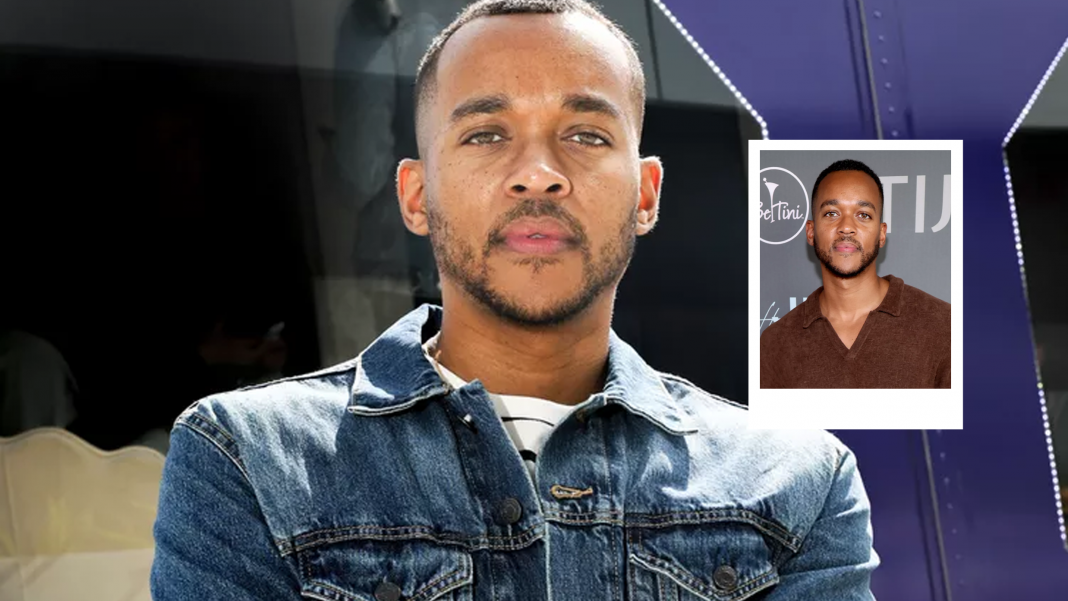In a strikingly honest interview, Love Is Blind alum Marshall Glaze opens up about the darkest moment of his life, when he nearly ended it all. Now, after confronting his pain and choosing life, he hopes his story can help others find their way back to hope.
A year shadowed by silence
For millions, Marshall Glaze is best known as the emotionally open, soft-spoken participant from season 4 of Netflix’s Love Is Blind. But behind the scenes, the past year has been marked by a private struggle that almost cost him his life. On the June 4 episode of What’s the Reality?, a podcast hosted by Amber Desiree “AD” Smith, Glaze peeled back the curtain on his mental health journey, revealing the depths of despair he endured and how he found a way out.
“Last year was just very tough for me mentally and I was going to take my own life,” he admitted, his voice steady but his words heavy. “It got to a point where I had always been morbidly curious, but never thought about how to do it. Then one day, I was just down in the dumps, crazy depressed. Nothing is going right for me or I feel like nothing is going right. That’s what my internal monologue is telling me.” Glaze described what many with depression know all too well: a relentless inner voice that casts a shadow over everything. “Those voices, that darkness just got a little bit louder, got a little bit darker.”
A mind in crisis
Though he had long been someone who processed life through reflection and emotional depth, qualities that made him a fan favorite—Glaze confessed that even his most cherished comforts lost their power. “No favorite meal, no favorite movie, no favorite song could lift me out of that,” he said.
It was a conversation with his mother that helped him realize how dire his situation had become. Normally, she was someone he spoke with multiple times each day. But this time, when they hung up the phone, he found himself feeling oddly at peace with the idea that it might be the last time. “I knew I had a problem,” he said.
This loss of emotional connection, even with someone so central to his life, signaled that something deep inside was breaking. And yet, despite being surrounded by a world that likely saw a rising reality star, Glaze was grappling with isolation and pain that few could see.
The moment everything changed
Sometimes it’s not a grand event that shifts a person’s trajectory but something small, quiet, and entirely personal. For Glaze, it was a solitary walk on a rainy day in Seattle. Wearing only a cutoff T-shirt, basketball shorts, and a pair of slides, Glaze stepped out into a storm. “Seattle is a very rainy city, and this was at peak rain season,” he recalled. “I lived on a very busy street in downtown Seattle, and at any time of day, there’s buses, cars, bikes, people walking and nobody was out there.”
As he wandered past the Space Needle and eventually circled back to his apartment, the silence of the city mirrored the void inside him. And yet, in that strange, empty moment, something unexpected happened. “I’m like, ‘I want to live,’” he said. It wasn’t a sudden transformation or an end to the pain, but a choice, a defiant one to continue. “That walk,” he emphasized, “I will never forget.”
Speaking truth to stigma
For Glaze, sharing this deeply personal story isn’t about drawing attention. It’s about healing — both his and potentially someone else’s. “Sharing my story helps me heal,” he said. “I hope that someone out there can resonate with that and choose life.”
His candor adds to a growing conversation around men’s mental health, particularly among Black men, where stigma and cultural expectations often discourage vulnerability. Glaze’s decision to speak publicly about suicidal ideation challenges these norms and in doing so, offers permission for others to open up as well.
What makes his message powerful is not just his survival, but the way he frames it: not as a victory lap, but as an ongoing process. The battle didn’t end with that walk; it began anew with a commitment to face the dark days head-on and to keep talking.
The unseen weight of public lives
Though reality television offers brief fame and broad exposure, it can also leave participants unmoored, vulnerable and struggling with identity. Glaze’s experience on Love Is Blind brought moments of connection and heartbreak alike, and when the cameras shut off, he, like many, was left to navigate the emotional aftermath without a script.
In today’s world of filtered lives and performative positivity, his openness about mental illness is a quiet act of resistance. It reminds audiences that suffering doesn’t always look dramatic, and that some of the deepest pain can exist behind the most composed smiles.
Choosing life and helping others do the same
Marshall Glaze is still here, and for him, that fact alone is something worth sharing. His story is one of near silence, of deep emotional shadows, and ultimately of choosing to keep going. And while his voice is soft, the message is anything but.
There is no single cure for depression, no one-size-fits-all solution. But what Glaze offers — honesty, empathy and the willingness to speak about the most uncomfortable parts of the human experience can be part of the healing process for many.
As he continues to walk his path, one step at a time, Marshall Glaze becomes more than a reality TV contestant. He becomes a reminder that vulnerability is a strength and that even on the rainiest day, there’s a way forward.
If you or someone you know is struggling with thoughts of suicide, help is available. In the U.S., call or text 988 for the Suicide & Crisis Lifeline.




